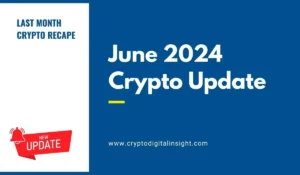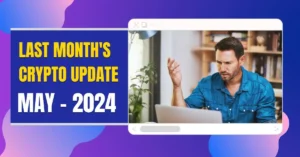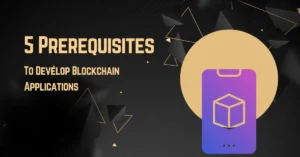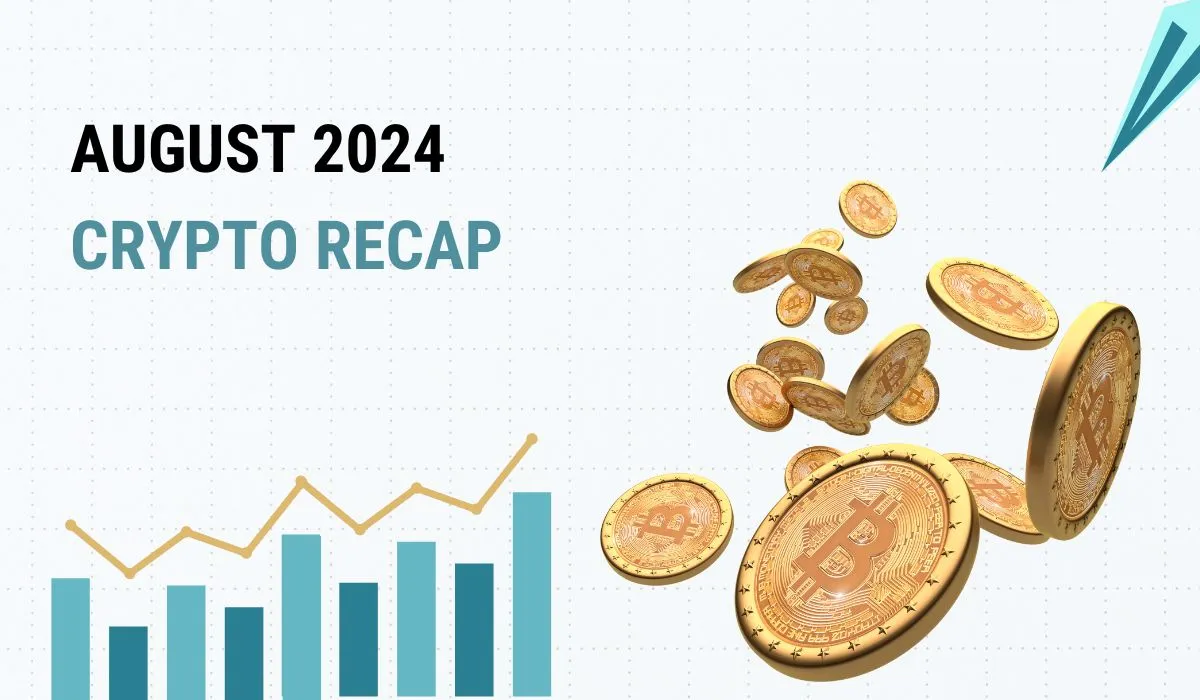There’s no arguing that services like payoneer have made life easier for people in Bangladesh collaborating with clients overseas. However, things are not always as smooth when it comes to exchanging those hard-earned USD with BDT inside the country. One wrong move, and you’ll find yourself right into the trap of currency exchange scams.
Yes, hoping this isn’t stirring up memories of some tormenting experience for you. But in case you have recently fallen victim to such a scam, or want to avoid getting scammed, we might have some insights to help you with.
How Do Currency Exchange Scams Work?
In Bangladesh, people often rely on social media services to exchange the dollars in crypto wallet with Bangladeshi currency. Why? Because it’s more direct and less paperwork to get the bank balance sorted. But as it’s always been since the dawn of civilization, when there’s a way for something, a scammer is always one step ahead of you to the checkpoint.
So, it’s more than obvious why some scammers would prefer to jump to the biz of currency exchange scams. It’s hard to resist the temptation of stealing from people when a big chunk of green dough is involved.
How Do Scammers Approach Potential Victims?
People usually prefer getting the currency exchanged online for easier service. Scammers are aware of that. Hence, they are always lurking around in online marketplaces and social media to target potential victims.
It can be an exchange forum, or reddit, facebook, even reputable platforms like LinkedIn. The inexperienced, amateur scammers are more likely to post on various exchange forums or groups looking for potential customers. This might be something direct, or with attractive offers to lure gullible people.
The experienced, clever ones put more effort into the scheming process. They open pages to offer services, take time to promote themselves with constant posting and bullet points that are hard to resist.
These scammers are aware of what the customers would be expecting from their service. So they use exact keywords to grab people’s attention and throw around phrases about trust and loyalty to appear more genuine.
The sly ones know very well that most people will check information properly before trusting them with their money. So they prepare their profiles, business accounts, and pages with an appearance similar to trustable agents. And as everything is public on the internet, you can’t actually stop someone from acting like you to gain people’s trust.
To maintain your privacy while trading, consider using an anonymous cryptocurrency exchange that ensures secure and private transactions without compromising your personal information.
What Kind Of Tactics Do They Use To Gain Trust And Convince Victims To Send Money?
Lots and lots of words. Like every other shady individual, these scammers rely on manipulation and tricks to get people to trust them. They’ll fabricate several documents and pieces of information to present as the “truth”, make bold yet false promises to convince the customer, they’ll resort to emotional manipulation to sound genuine.
These scammers will do everything that seems plausible in an honest interaction between two traders. And since as humans we expect things to go normal without any dark agenda hiding behind this, we’re likely to fall for these shrewd gestures.
Let’s look at the case of a very close acquaintance of mine for instance. He earned a good amount from his foreign gigs and then decided to exchange his wallet fund for BDT.
He’s well aware of all the worst things that can happen when going into a deal with a stranger. His only mistake was that he entertained the rare idea of humans being as trustworthy as they claim to be. Sad as it is, his case can be a fine example for demonstrating the tactics these scammers usually use to rip people off.
- Using Words Of Assurance
If we look at this conversation, we can see that the scammer is using religious sentiment, and talking about business ethics and conscience to appear as a moral trader. It’s a pretty common scenario in Bangladesh for the frauds to use religion to win people over, as many customers are practicing people with religious beliefs. As my acquaintance is a believer too, the scammer took the opportunity to bait him with words of ethics.
Picture: Screenshot of the conversation between my acquaintance and the scammer. (The scammer’s texts are in white boxes)
Even if a customer isn’t a follower of the institutional religious belief, these grifters always have a way to preach morality to them. The thing is, they’ll spot your ethical priority and shape their claims according to that; so there’s something catering to everyone.
- Trying To Establish Genuine Identity
Since scammers are frauds, they hide behind false identities to trick people. And people are aware of that. So to build trust, these tricksters try to establish genuine identity in various ways rather than a direct physical appearance.
Picture: The fraud is delaying to go for a video meeting when asked
Picture: The WhatsApp profile of the possible fraud. The person in the photo is not the scammer. The scammer stole the photo from the internet for false identity.
Picture: Intentionally dropping irrelevant photo in the middle of the conversation to establish his location which might not be true.
If you look at the screenshots above, the first conversation is a clear indication of them ignoring the proposal or delaying going for a video meeting. Frauds are afraid of video or face-to-face meetup as it hinders the chance of using a faux persona.
Some scammers use obvious stock photos, AI generated photos, or photos without their real faces to hide the identity. People often avoid these traders because it’s hard to trust someone without a live appearance.
Some grifters are one step ahead and steal other people’s photos from their account and pose as those people. Casual photo taken in a phone camera as a profile picture provides a feeling of realness, and this is where even the most careful ones seem to slip and fall. And this is exactly what happened to my acquaintance.
To cement the identity, they might add more to the personality. It can be in the form of sharing various contents from a social media account, or casually dropping information about themselves in real time to showcase a more authentic life. Can even adopt a local identity for a more trustable disguise.
The location thing happened with my acquaintance as we can see in the next screenshot. He just casually dropped a picture of a random location with an intentional focus on the name of the area.
With this, he felt like a regular person doing regular stuff, who belongs to a certain place. And there you have enough information for a new identity.
- Constantly Presenting Fabricated Documentation
To prove that their trade is real, they’ll show you receipts of their previous transactions, even fragments of conversations with other customers. Only issue is that all of these things are forged, they’re edited using softwares to fool actual customers into giving money. Sadly, it’s not always easy to spot the forgery at the first glance.
Picture: Fabricated screenshot of a false transaction
My acquaintance believed the scammer because he managed to convince him that he had done it before with his fabricated proof. Also, this fraud showed screenshots like the one above to ensure that the transaction is happening in real-time.
All this information provided by the trader was forged. But it’s not hard to fall for such tricks. Sometimes it’s quite difficult to figure out if the information is real or not.
- Giving Excuses For Sending More Money
Once they have earned customer’s trust, scammers will always have some excuses ready for more money. They’ll give some false explanation claiming that more money is required for the transaction to be successful. And will provide some more forged receipts to support their claims.
Picture: The scammer asking for more money.
Picture: Scammer showed several screenshots like this to prove more money is needed for a successful deposit.
Picture: Several screenshots of my acquaintance sending money at different times to the scammer as he kept asking for more.
These screenshots are a bitter proof of the extent a scammer could go to convince their victim to send money. In plain sight, these demands seem pretty harmless. But this is how it always ends, forged receipts and blatant lies to manipulate people into giving away their funds.
What Are The Red Flags To Watch Out For When Exchanging Currency With A Third Party?
From what we’ve learned from the scam pulled against my acquaintance, you should listen to your guts. Because no matter how much you feel like trusting those lies, the red flags are always there. For Instance:
- No genuine page or account: If you check their business page, profile, or account, you’ll notice some irregularities. Also, the same information can be spotted in several different pages claiming not to be connected to each other.
- Afraid to show face: When you’ll approach them for a video or face-to-face meeting, they’ll refuse. Or will take a suspicious amount of time or give ridiculous conditions before agreeing to a meeting.
- Higher exchange rate: If you compare with the current exchange rate, you’ll find that they’re asking for a rate that’s nowhere near the real number. The amount will surpass even the regular profit margin.
- Delaying or changing topic: When you ask for something that might end up exposing them, they will delay to give you the information you asked for, or change the topic to divert your attention. For instance, you might ask for proof of a transaction to your account, and they’ll start talking about other things instead of providing the proof.
- Forged receipts: When you’ll try to check if they’re authentic, the scammer will provide you with receipts and documents to prove their authenticity. However, there will be some flaws like editing mistakes, different proportion and placement of texts, wrong information, etc.
For instance, if you look at the screenshot here, you can spot several flaws. The font mentioning the email address and the sum of money doesn’t blend with the font underneath. It looks like it has been added to this receipt later via an editing software.
Also, the spelling of ‘confirm’ is wrong. This is highly unlikely for a program developed by professionals.
Picture: Forged receipt from the scammer.
- Not accepting your offer: No matter what you suggest as a client, they’ll never pay attention to your demands. Their only concern would be to tell you to send the money the way they want you to.
- Asking for more money without effective result: Even when you’re not receiving the transaction you’re supposed to, they will still give excuses and ask for more money. Instead of making sure that you’re receiving your share, they’ll be more eager about the amount they’re receiving, when it should be the opposite, since you’re the client.
And you’ve seen the screenshots above. Now, go figure.
If you’re wondering about the current state of Ethereum and whether it’s still a viable investment, you should check out our latest analysis. Our detailed article delves into the question: Is Ethereum Dead?.
How To Protect Yourself?
Of course, the next step is to take all necessary measures to protect yourself and your assets from future scams. For that, from now on, always keep these things in mind:
Use Reputable Exchange Services
Always, always go for only the reputable exchange services. Consult with your friends, colleagues, and acquaintances for the best recommendation. The second best thing is to ask in forums.
But since those forums are full of frauds, go for suggestions that don’t seem as shady. Still you can’t be too sure. So crosscheck information, try to find reviews about the suggested services, and check phone numbers on the TrueCaller app to see if there’s something shady underneath the helpful faces.
Research Exchange Rates Beforehand
Never forget to check the exchange rates yourself before approaching a third party agent. They’re always changing, so it’s vital to keep up with the date anyway. And the knowledge will help you separate the scammers from the real exchangers.
Secure Transactions Are Very Important
It feels good when there are shortcuts for transaction processes. But don’t risk your trust and bank balance for easy service from a third-party operating on WhatsApp and Facebook. Take a look at the currency exchange guideline provided by Bangladesh Bank, be completely sure, and check the process several times before transferring even one dime to a stranger’s fund.
What To Do If You’re Scammed?
No matter how vigilant we are, scammers are constantly evolving to prey onto the next victim. So there’s always a chance for you to fall into a newer, more creative trap. Or might just have to pay a sad price for believing in humanity.
Either way, report to the authority first. Seek immediate help from local law enforcement authorities. Contact the bank and report the scam with your account details and necessary papers.
Also, if possible, use blockchain explorer to trace and track the fund. It’s possible to find more about the scammer’s location and other details if the money hasn’t been removed from the wallet yet. Also since they’re using a wallet, report the scam to the wallet authority and ask to freeze the funds.
While at it, expose the scammer with all the information you can find on them. At least, this will end up saving some other future victims.
For those looking to trade digital currencies, it’s crucial to choose the right platform. Check out our guide on the best cryptocurrency exchange in the UK to find the most reliable options available.
Conclusion
It feels horrible to be scammed, no lies. How do we live and function in society, if we can’t trust each other and always have to be on our toes to protect ourselves? Sadly, some people don’t seem to care for that, and they will find new ways for currency exchange scams and other atrocious things.
Does that mean we should not believe other people or stop exchanging our money? No, we must trust people, but also look out for suspicious activities so that frauds can’t take advantage of our faith. Taking each step with a bit of caution will come handy in the long run.
Frequently Asked Questions
How to confirm if a person is authorized for exchanging foreign currency?
To be legally authorized, it’s mandatory for a person or an agency to be issued an AD license by Bangladesh Bank to partake in currency exchange. So, check their license.
How to check the current currency exchange rate?
With google, it’s just a matter of seconds. In the search bar, type the names of the currencies you’re interested in and click. The current exchange rate will appear right at the top of the search result, and it’s always up to date.
What to do if I can’t detect if a receipt is forged or not?
First, approach your friends, acquaintances, or colleagues for help. If that fails, reach out to law enforcement authorities. They have forensic experts to look into such matters.







